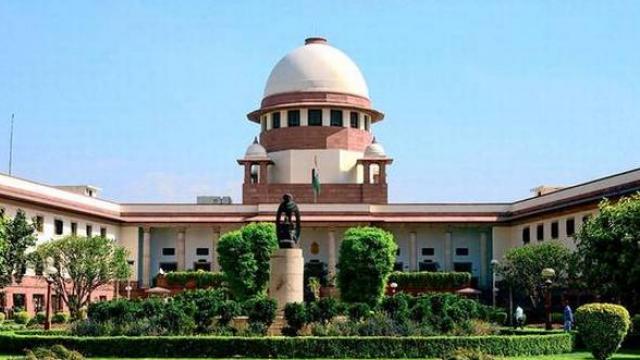Government notified the implementation of the law on January 10
Government advised the usage of the law on January 10
The other two judges on the Bench are Justices S. Abdul Nazeer and Sanjiv Khanna. The principal appeal recorded for hearing is the one documented by the Indian Union Muslim League (IUML), which has looked for a quick remain on the execution of the CAA. The court may likewise consider entries made for a reference of the petitions to a Constitution Bench.
The legislature has just informed the execution of the law on January 10. In the past hearing on December 18, the Supreme Court had would not remain its usage. The Act has activated fights by normal residents, including understudies, experts, moms, the nation over.
Police activity on the dissidents had drawn overwhelming analysis.
The Chief Justice, in the last hearing, had featured to Attorney General K.K. Venugopal the requirement for the administration to expose the goals of the Act.
The administration has kept up that the corrections made to the Citizenship Act of 1955 were intended to secure and invite strictly abused individuals escaping the three neighboring nations where Muslims structure the lion’s share.
The top court had on December 18 gave a proper notification conceding the petitions recorded by individuals from varying backgrounds and beliefs: parliamentarians, resigned High Commissioners, administration officials, legal counselors, understudies, activists, proficient affiliations, Opposition ideological groups and NGOs.
The petitions contended that the law invites “illicit transients” into India specifically based on their religion and distinctly rejects Muslims. They have presented that it has an “unholy nexus” with the National Register of Citizens (NRC) practice and is against the standards of secularism, right to balance and poise of life revered in the Basic Structure of the Constitution.
The petitions said the Act specifically consents to give citizenship advantages to unlawful transients from just three nations. Other than the new law doesn’t force any necessity on illicit vagrants to demonstrate their case of strict oppression or even a sensible dread of it, the petitions said.
The petitions have contended that the enactment effectuates segregation based on the inherent and center character of a person, that is, his strict way of life as a Muslim. While Muslim transients would need to show their verification of residency in India for at any rate 11 years, the law permits illicit vagrants from the six networks to be naturalized in five years’ time.
Government notified the implementation of the law on January 10
The other two judges on the Bench are Justices S. Abdul Nazeer and Sanjiv Khanna. The first petition listed for hearing is the one filed by the Indian Union Muslim League (IUML), which has sought an immediate stay on the implementation of the CAA. The court may also consider submissions made for a reference of the petitions to a Constitution Bench.
The government has already notified the implementation of the law on January 10. In the previous hearing on December 18, the Supreme Court had refused to stay its implementation. The Act has triggered protests by ordinary citizens, including students, professionals, mothers, across the country.
Police action on the protesters had drawn heavy criticism.
The Chief Justice, in the last hearing, had highlighted to Attorney General K.K. Venugopal the need for the government to publicise the objectives of the Act.
The government has maintained that the amendments made to the Citizenship Act of 1955 were meant to protect and welcome religiously persecuted people fleeing the three neighbouring countries where Muslims form the majority.
The top court had on December 18 issued a formal notice admitting the petitions filed by people from all walks of life and faiths: parliamentarians, retired High Commissioners, service officers, lawyers, students, activists, professional associations, Opposition political parties and NGOs.
The petitions argued that the law welcomes “illegal migrants” into India selectively on the basis of their religion and pointedly excludes Muslims. They have submitted that it has an “unholy nexus” with the National Register of Citizens (NRC) exercise and is against the principles of secularism, right to equality and dignity of life enshrined in the Basic Structure of the Constitution.
The petitions said the Act selectively agrees to grant citizenship benefits to illegal migrants from only three countries. Besides the new law does not impose any requirement on illegal migrants to prove their claim of religious persecution or even a reasonable fear of it, the petitions said.
The petitions have argued that the legislation effectuates discrimination on the basis of the intrinsic and core identity of an individual, that is, his religious identity as a Muslim. While Muslim migrants would have to show their proof of residency in India for at least 11 years, the law allows illegal migrants from the six communities to be naturalized in five years’ time.
To Watch Diary of Events 2019 from The Hindu









Thanks regarding supplying these kinds of superb data.
You have got the most impressive online sites.